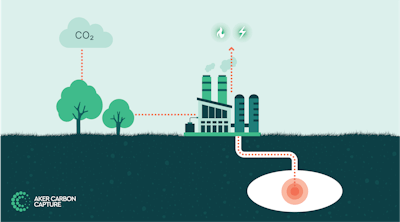Introduction
Today, the European Commission presented its Communication on A Green Deal Industrial Plan for the Net-Zero Age. The communication sets out key steps the EU must take to accelerate the path towards the Net-Zero Age, of which Carbon Capture and Storage (CCS) plays a vital role. Central to the Green Deal Industrial Plan, the Commission proposes to put forward a Net-Zero Industry Act to underpin industrial manufacturing of key technologies in the EU, such as Carbon Capture and Storage (CCS). The act would provide a simplified regulatory framework for production capacity of products that are key to meet EU climate neutrality goals.
Background
On the backdrop of the Inflation Reduction Act in the United States, which provides generous tax credits and financial incentives to support the green transition, the EU voiced strong concerns. The US policy package based on a “Buy American” logic included according to the EU tax breaks that could lead to discrimination, and production subsidies that could disadvantage European companies. China has also prioritized subsidizing clean tech innovation and manufacturing as part of its industrial Five-Year Plan. Today’s European Commission Communication highlights its commitment to being a world-leader in the green transition and can be considered as a direct response to global climate investments, such as in the US and China.
The role of CCS in the Green Deal Industrial Plan
The outline for the Green Deal Industrial Plan is based on four pillars, of which half of them have direct impact on the acceleration of CCS:
- Faster access to sufficient funding, which includes both national and EU level funding for key sectors, and a proposal for a European Sovereignty Fund
- A predictable and simplified regulatory environment to allow for the growth of net-zero industries reflected by a Net-Zero Industry Act
To speed up access to finance, the EU Commission intends to allow further flexibility for the Member States to grant aid through temporarily adapted State Aid rules, until the end of 2025, to speed up and simplify procedures. The EU Commission will, amongst other actions, adapt State Aid rules by further revising the Green Deal General Block Exemption Regulation. Additionally, provisions linked to Important Projects of Common European Interest (IPCEI) will give Member States more flexibility to support measures in key sectors, such as CCS and hydrogen – funding rules will be even more flexible when several States are involved. This can further incentivize cross-border collaboration between CO₂ emitters and transport and storage players, and also facilitate the further development of more CO₂ hubs.
Part of the first pillar, the EU Commission wants to deploy a Net-Zero Industry Act to boost deployment of key technologies in the EU, such as carbon capture and storage technologies. This includes ensuring a simplified regulatory framework that will facilitate production capacities, and would in particular identify crucial goals for industrial capacity by 2030 where necessary to make sure strategic dependencies do not put the green transition at risk. It will consider the whole supply and value chain to identify and prevent bottlenecks. These aspects are reliant on sector-specific analysis.
The Net-Zero Industry Act will also seek to reduce the length and enhance the predictability of permitting processes by defining time limits for different stages of permitting. This may generate predictability and acceleration for CCS-actors who are looking to establish themselves as first-movers, which encapsulates the urgency to Net-Zero this Communication aims to portray. Furthermore, it will significantly reinforce Member States’ administrative capacity, by for instance introducing a ‘one-stop-shop’ where there is a sole point of contact for investors and industrial stakeholders during the entire administrative process. This addresses a problem many CCS stakeholders have identified while maneuvering the regulatory landscape, and needs to be unbundled to accelerate the race to net-zero.
Conclusion
It is highly encouraging that the European Commission is recognizing the need for a diverse portfolio of net-zero technologies to reach crucial climate goals in the Fit for 55 package and European Green Deal. Indeed, the Net-Zero economy will be firmly set within the next few years. That is why it is crucial to incentivize and reward those who act now, by investing first and positioning themselves towards reducing or removing emissions. CCS is a technology that can be deployed rapidly and is crucial on the road to net-zero emissions – this decade will be decisive for the world to limit the rise in global temperatures, the time to act is now.



